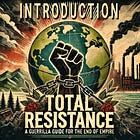I grew up on stories where sacrifice was honorable. Luke turning off his targeting computer. Frodo carrying the ring into Mordor. Katniss volunteering in her sister’s place. Even Jesus on the cross.
No one called these cautionary tales. They were in fact taught as the model.
“Greater love hath no man than this, that a man lay down his life for his friends.”
-John 15:13
In my childhood home, nestled between Sunday sermons and Saturday night movies, I absorbed a consistent message: the good life is not the easy one. Mormonism, for all its complexities, carried that throughline. Eternal reward through righteous endurance. Even outside religion, it was there. Our heroes bled. Our soldiers stormed beaches. Our prophets were martyred. You were supposed to give yourself to something bigger. That was the arc of a meaningful life.
But somewhere along the way, that narrative cracked.
Today, we live in a culture that praises those who sacrifice on screen. Meanwhile those who do in real life are shamed. The hero in the blockbuster gets a parade. The protester blocking traffic gets arrested—or worse, mocked. Taking a real risk for a just cause? I’ve seen people call that virtue signaling, self-indulgent, and reckless.
It’s a strange paradox: we’ve made self-sacrifice a sacred motif in storytelling, but a taboo in practice.
Why?
Part of it is comfort. Sacrifice asks something of us. And we’ve been conditioned, in subtle and overt ways, to see personal comfort as the highest good. That’s not by accident. It’s the product of decades of cultural engineering, through advertising, economic policy, media framing. The script tells us our purpose is to be secure, entertained and most importantly… productive. That anything that threatens that bubble must be fringe, or crazy, or dangerous.
Another part is atomization. The less we belong to something larger than ourselves… a family, a movement, a place, the harder it is to see why risk would be worth it. Sacrifice without shared meaning feels like martyrdom. But in community, it becomes an offering. That’s what our myths used to hold space for.
And perhaps the deepest piece is fear. We’ve lost rituals that help us navigate risk, or pain, or death with dignity. Our society medicalizes suffering. Pathologizes discomfort. So when someone chooses to stand in the way of a bulldozer, or leak classified documents, or dares to harm property, we don’t call it courageous. We call it unhinged.
Oddly, Patrick Henry’s cry “Give me liberty, or give me death!” still echoes in schoolbooks, even if no one around us is willing to echo it in the street. We rewatch Braveheart and V for Vendetta and The Hunger Games for a reason. Not because we love violence, but because we crave purpose. We crave lives that mean something.
There’s perhaps a catharsis in watching meaning on screen… and its terrifying to think that perhaps we replace what we would earn on the ground with that relief in story.
Somewhere, deep down, we still know: meaning requires risk. Freedom isn’t safe. Justice isn’t sterile. No one ever dismantled an empire with anything less.
We need a new myth… albeit maybe it’s really an old one. The one that says ‘love is worth the cost.’ That sacrifice, real sacrifice, is sacred. Not because it’s easy, but because it’s honest.
Because some things are more important than safety.
The Privatization of Courage
In the wake of World War II, America built a consumer utopia on the scaffolding of industrial power and global extraction. But it was the 1970s and 80s when neoliberalism took hold that the rupture became systemic. Market logic was not just applied to commodities, but to people. Margaret Thatcher famously declared that “there is no such thing as society.” Just individuals. Just families. Nothing in between.
The safety net was gutted. Unions were crushed. Health and housing were financialized. Any collective identity not mediated by consumption was eroded. The message was clear: your life is your own responsibility. Your security is your job. Your success, your failure is yours alone.
In this new paradigm, sacrifice didn’t disappear. It was just rebranded.
Now, we were told to sacrifice for the market. For our careers. For productivity. The self-help aisle ballooned. Hustle became holiness.
This was the great inversion.
Where once sacrifice meant giving to the community, now it meant giving up the community. Giving up time with family to get ahead. Giving up your voice to keep your job. We sacrificed… everything including our health and our conscience on the alter of success.
And crucially, any form of collective sacrifice, whether for the planet, for justice, for future generations, was cast as naive at best, radical at worst. The myth of individual safety was installed like a firewall around every meaningful act of resistance.
Don’t risk your job. Don’t alienate friends. Don’t say that out loud.
The irony is that the dominant culture still praises sacrifice—but only when it serves power. Soldiers are heroes. CEOs who work 100-hour weeks are visionaries. Single moms working three jobs are inspirational. But activists who go to jail? Troublemakers. Whistleblowers? Traitors. Extremists. Even terrorists now.
This is the privatization of courage.
It hollowed out the public square. It turned resistance into spectacle. And it taught a whole generation that the only worthy pain is the kind that fuels GDP.
But the old truths haven’t vanished. They’re just buried beneath debt, distraction, and disillusionment. And once we remember that liberation isn’t a solo project, we begin to reclaim the ancient covenant:
That real courage is public. That solidarity is sacred. That freedom has always required risk.
And that safety, when bought at the price of silence, is just another kind of cage.
Breaking Out of the Cage
To break out of that cage, we must be willing to do more than speak truth. We must be willing to live it. That means confronting power, not just critiquing it. It means interrupting business as usual, knowing that real disruption rarely comes without consequence. We have to stop pretending that liberation can be downloaded, that systems of domination will be swayed by tweets or softened by petitions or protest.
“Power concedes nothing without a demand. It never did and it never will. Find out just what any people will quietly submit to and you have found out the exact measure of injustice and wrong which will be imposed upon them, and these will continue till they are resisted with either words or blows, or with both. The limits of tyrants are prescribed by the endurance of those whom they oppress.”
―Frederick Douglass
We need to be willing to withdraw our consent from the machine. To divest from the comforts that keep us complicit. To refuse the roles we’ve been assigned. To take risks that are calculated, strategic, and communal. Because the ruling order survives not only on our labor, but on our fear.
But no one can face that fear alone. To risk well, we need each other. We need thick, rooted relationships with land, with ancestors, and community. We need to know not just what we’re resisting, but what we belong to and what we love. A garden. A watershed. A people. A story older than empire.
Because it’s not enough to fight what we hate. We need to fight for what we love. And love, in this context, isn’t sentimental—it’s sacrificial. It’s the kind of love that ties you to a place, binds you to others, and gives you the courage to stand firm when the world demands your silence.
That’s why the myth of safe resistance is so insidious. It tempts us to believe we can keep everything we’ve been given, and still change everything we’ve inherited. But freedom doesn’t work like that. It never has. And if we want to survive the coming storms, we’ll need to recover an ancient muscle:
The courage to risk everything for something worth living for.
Why Risk Must Be Strategic
Risk for the sake of risk is just martyrdom. But risk in the service of strategy is how movements are won.
Throughout history, the most effective resistance didn’t just burn hot… they burned smart. From the Montgomery bus boycott to the sabotage cells of the French Resistance, from ACT UP to the Zapatistas, every meaningful liberation effort has paired courage with clarity. They chose their moments. They mapped power. They studied the terrain… geographically, culturally, emotionally, economically. They made the cost of oppression higher than the cost of change.
That’s what makes strategy essential. Not to wait for perfection… but to center intention. It’s asking: Where do we press? When do we wait? Who do we trust? What will bend, and what must break?
Without strategy, we burn out or lash out. We confuse visibility for victory. We endanger the very people we’re trying to protect. But with strategy, risk becomes purposeful. Sacrifice becomes a tool, not just a wound. And resistance becomes sustainable.
Strategic risk requires patience, planning, and precision. But it also requires imagination. It asks us to dream beyond collapse. To organize not just for disruption, but for liberation. Not just to destroy the machine, but to build the world after it.
And for that, we’ll need more than rage.
We’ll need wisdom.







I wonder if in addition to atomization and fear, there's a resistance to the obligation that someone else's sacrifice imposes upon us, that we are meant to tend to the people who sacrifice on our behalf. There are a lot more layers than just this, but I wonder if part of the reason healthcare workers became villainized during the pandemic was that the collective did not like feeling obligated to care for them in some way because of their sacrifice.
I had this very conversation with my wife, a psychologist, the other day only you wrote it all down, eloquently. Thank you.
I didn’t take what I sometimes call ‘lack of personal responsibility’ into the collective reassertion of the social contract as needing effort but I see where you are going.
And then I realised it is courage, somehow Maggie and her neoliberal accolites realised that if the contract eroded courage, it would persist. So here we are on the couch with the remote after a hard day getting stressed to pay for Netflix.
Collapse indeed.